If you read the review of my three years in New Zealand, you will notice that I only had one small expectation for my WHV in New Zealand: to live a nomadic life. However, just one month after my arrival, I fell in love with the Tasman region which, against all odds, became my “base” during my trip.
So why settle down when deep down I wanted to live a nomadic life?
Is the Van Life compatible with settling down?
What are the advantages of these lifestyles? And their disadvantages?
If these questions have already crossed your mind, then this story is for you!
From travel to lockdown
November 2019. We are driving along the Coastal Highway. I am in awe of my surroundings. The tide is out so the highway is just above the sand. To my right, the sky is blue and I can see the sea in the distance. To my left, the mountains are imposing themselves with a certain softness. I look at my partner, my eyes shining, and we say to each other that this is really the dream place to live in for the next few months.
We arrived in Motueka a few days before starting my new job in Abel Tasman. I had never been to the area before, but the job sounded great, so I took the opportunity. When we arrived, we moved into a hostel for the very first time. Very quickly, we felt at home. We made incredible friends, we created habits in our little life and we never got tired of the beautiful landscape.
After 4 months there and despite my love for this region, my desire to travel has only grown. I have the urge to travel. I want to discover new things. I want to live new adventures. So, I decided that as soon as my contract is over, I will finally get back on the beautiful roads of New Zealand.
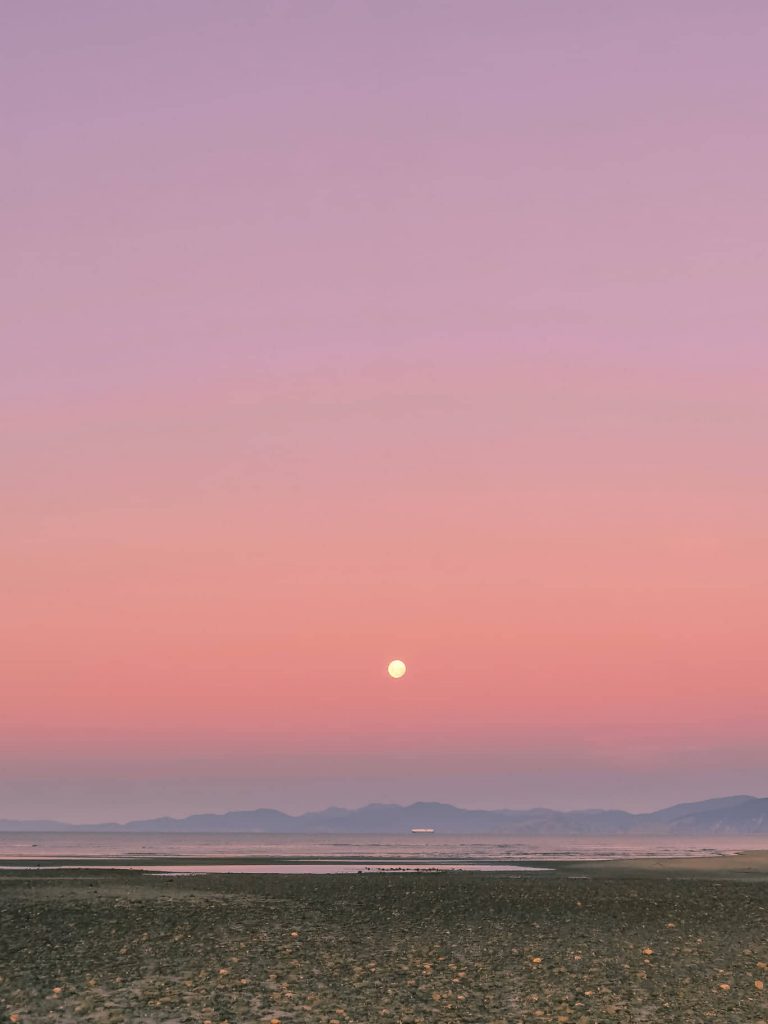
But then, a pandemic happened. Although the context was rather sad, I consider myself lucky to have been in a place I knew when the lockdown happened. I had my friends, lived in a town I knew, and I even had financial support from losing my job. If the lockdown had happened 10 days later, I would have been on the road and the situation would have been much more complicated.
So here we are, my partner and I, moving out of the hostel to a room in a shared flat with 4 people in it (much calmer and safer than a hostel in a pandemic situation according to us), for an undetermined period of time. After 2 months of isolation, feeling like a lion in a cage (remember, I already wanted to travel before the lockdown!), this is it, we are free to go out. And above all, we can leave!
A winter on the road
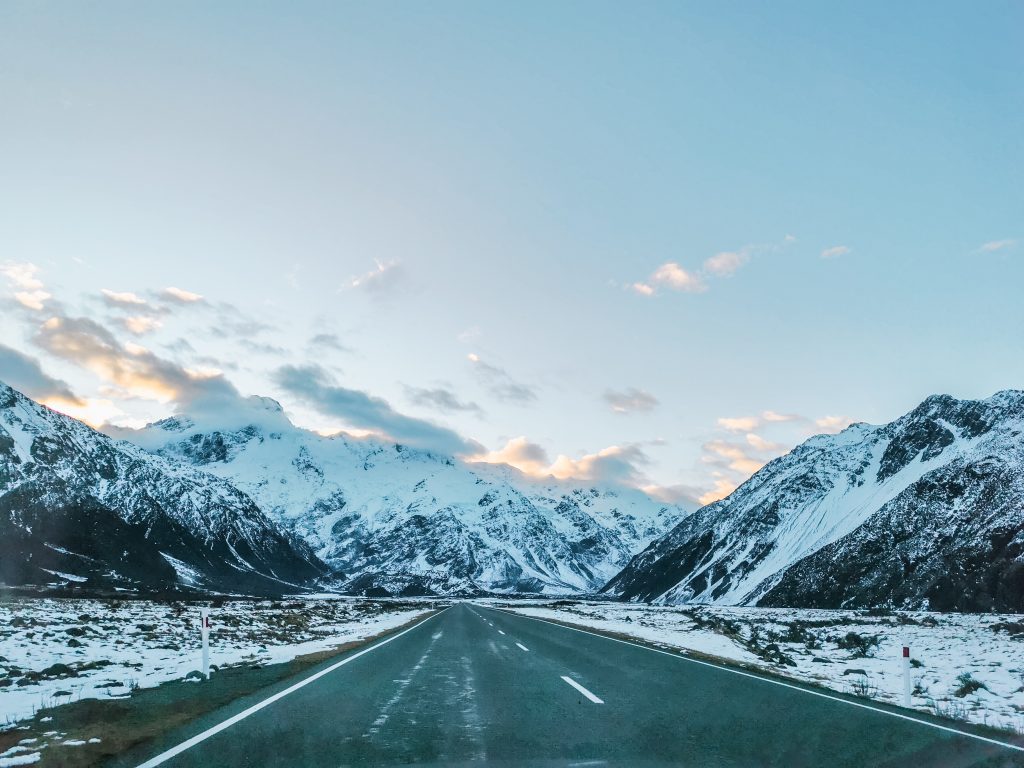
The backpack packed, the car filled with our stuff, we are ready!
We say goodbye to Motueka and let’s go, we hit the road. With the end of the visa approaching, I wanted to hurry and see everything. But life on the road made me understand very quickly that it was more beautiful to live in the present, one day at the time.
So we took our time. We got up with the sun most days. We planned our activities according to the weather. We had a vague idea of where we were going, but we knew that a thousand detours, a thousand surprises would come our way. We would stay in each place for varying lengths of time depending on how we felt there. We lived one day at a time, one city at a time, one camp at a time.
This feeling of freedom guided our entire winter in New Zealand.
It was my dream life.
A visa extension, and another, and another
After 3 months living in my little car, I was slowly running out of money. It was time to settle in a new place and enjoy our last month in New Zealand.
Here again, life played a little trick on us. A few days before the planned return, the government announced an extension of the visas. And there, that’s it, we are going back to Motueka.
Since that moment, we have lived our life this way. We work in Motueka in the summer and enjoy the empty roads in the winter. We try not to think about the future. And twice again, New Zealand has given us the gift of extending our visas.
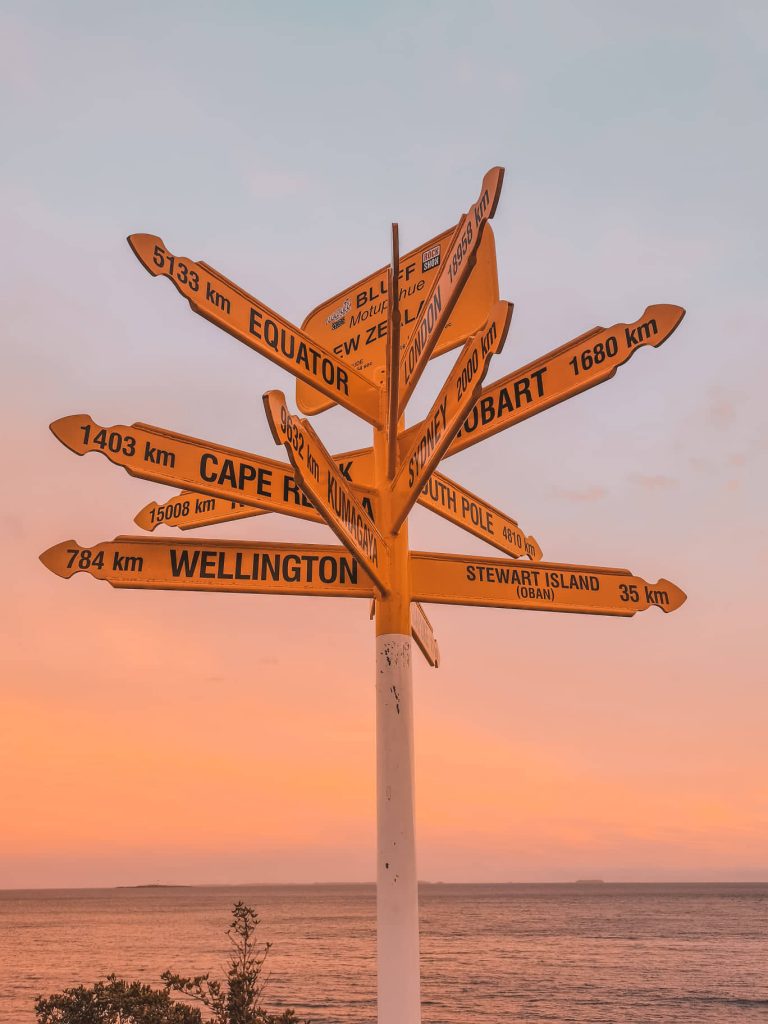
The pros and cons of settling
As you can see, I was far from imagining that I would settle somewhere during my trip to New Zealand. However, life decided otherwise. After meeting new people, lockdown and visa extensions, a part of me still wanted to return to Motueka. So that’s what I did.
There are many advantages to settling somewhere as a backpacker.
First of all, there’s the sense of belonging. I have to be honest, even though I love being on the road, discovering, going on adventures, I also like my little comfort and my habits. Settling in one place allows you to create new roots, a new home. And in times of pandemic, it was very reassuring to have this feeling while being on the other side of the world.
In fact, the Kiwi friends I met in Motueka became like a second family to me. I can’t count the number of times that one or the other, or the parents of one, helped me when I had little hiccoughs. Whether it was to help me when I had a flat tire in the middle of nowhere, to host me when I found myself without a place to live, or to drive me to the airport, my friends were always there and I could never thank them enough.
Besides, with time, you really become a bit like a local. Despite being a foreigner, I’ve been in this little town longer than some of my Kiwi friends. People recognize me in the stores, in the bars, in the street sometimes. Locals know me at work. And I have to say that it feels really good to be part of a small community and not just someone who is just passing through.
Finally, when you move to an area, you really start to get to know it and you can explore all of its corners. You can also take your time and not feel like you are rushing to maximize your time somewhere.
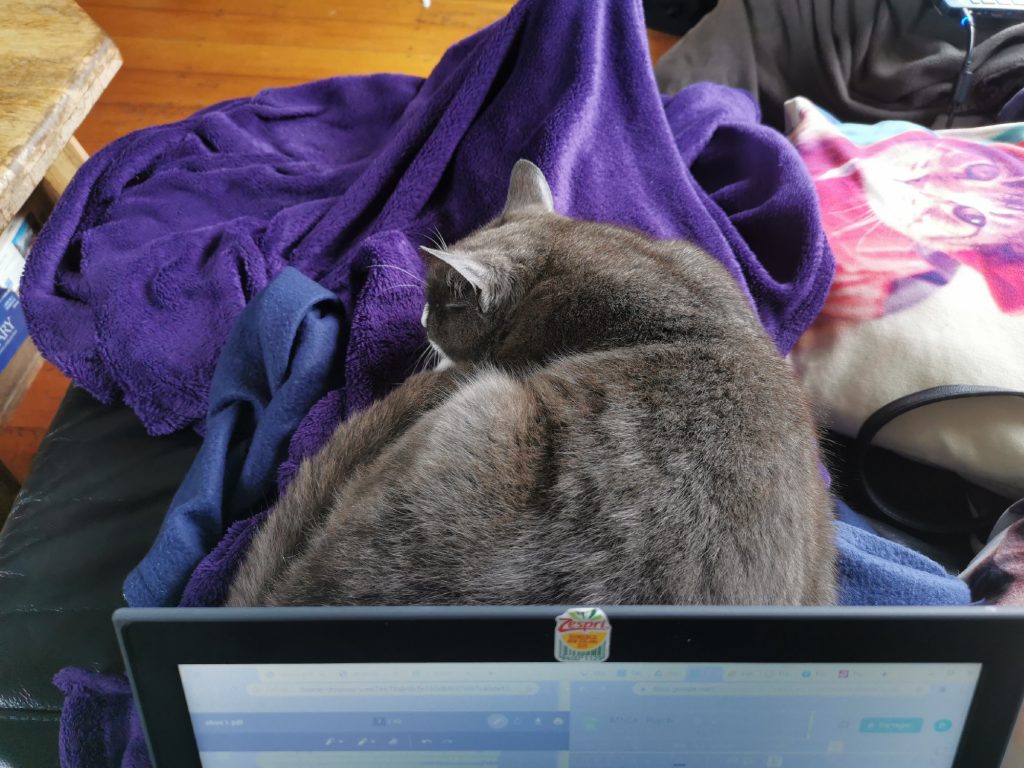
On the other hand, settling down somewhere can also have its cons. This feeling of not having to hurry can also make us fall into a certain complacency: as we have all the time in the world, we end up doing nothing at all.
And so, we can easily fall into a routine. And for me, routine is dangerous. I am always on the move. I need stimulation, I need to do things that excite me, to go on new adventures. And so, although I love my comfort, I can get bored and frustrated very quickly if I feel that things are getting a bit monotonous.
And finally, let’s face it, our backpacker label sticks to us a bit. And even though I love being seen as a traveler, people can be condescending sometimes because “we’re not from here,” even if we’ve been living here for several years.
The pros and cons of the Van Life
I haven’t mentioned this yet, but I wonder how you imagined my vehicle when you read my story. I wonder if you imagined a van with a nice wooden inside, drawers under the bed, a small kitchenette. Maybe my title was a bit misleading… So let me introduce you to Anakin (or Ani), my very first house on wheels.
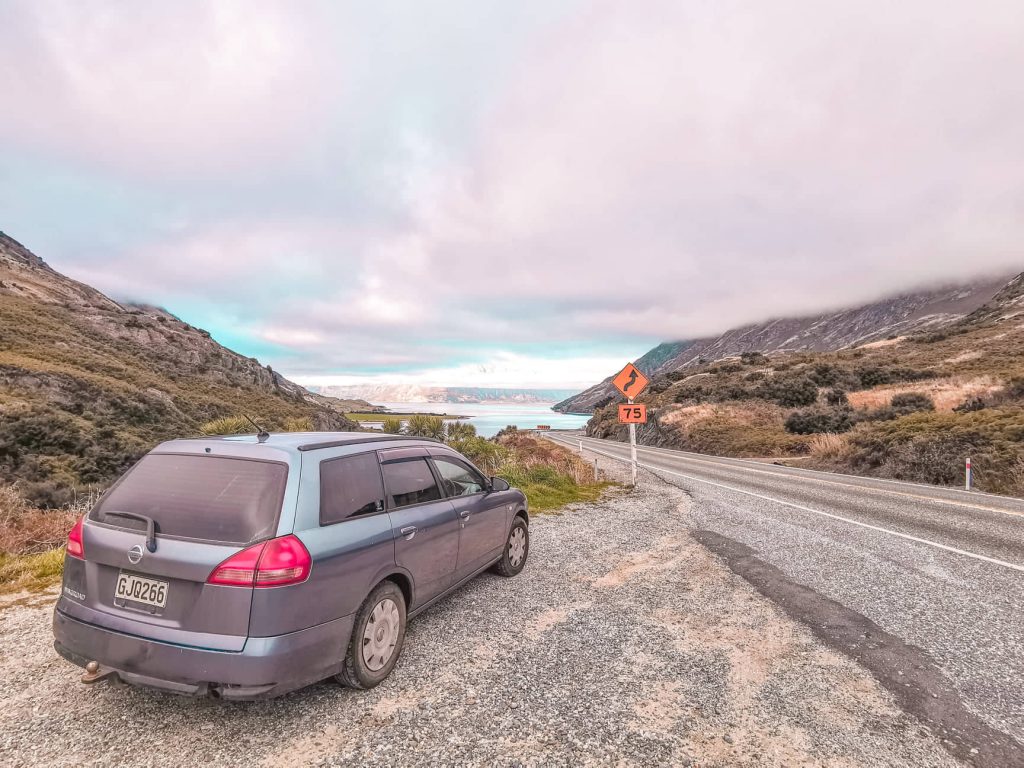
I think this was not necessarily the idea you had in mind. However, it is quite possible to live the Van Life (with 2 people!) in a small Nissan Wingroad, if you are ready to make some sacrifices of comfort.
Because if the Van Life is a dream for many, it also has some cons.
First of all, you can quickly become claustrophobic. A car (or a van) is small. It fits all your belongings and everything you need to live your daily life. So you have to be organized, even ingenious sometimes. In my case, every night we had to move all our stuff from the back to the front of the car to free up our bed. After 3 months, we became the pros of Tetris but at the beginning, it took us a long time to move everything while keeping a semblance of organization. We get used to it, but sometimes, we could do without it.
In fact, we could do without it especially when it rains. The weather can make our life a little more complicated when we live in our car. And even if it’s relaxing to fall asleep to the sound of raindrops on the roof, it’s not so fun when you have to pee at 2 o’clock in the morning and you have to cross a muddy camp under the bad weather to reach the nearest toilet. It’s also not fun when it’s raining all day, so you feel like having a cozy day, but your head hits the ceiling as soon as you sit a little too straight. Lastly, there is also the cold. Because yes, I’ve woken up with frost inside the car.
So the only comfort you can have when you live on the road is the comfort of the camp you are going to spend the night in. I thought that living in my car would allow me to live wherever I wanted. Unfortunately, it’s not as simple as that. There are specific places where you can spend the night. Some places are small so you have to arrive early to get a place. Some places charge a fee, others are free. Some camps offer some comfort like a kitchen, real toilets, and, if you hit the jackpot, you’ll even get showers! But most of the time, you will only have long drops and a water tank (not always drinking water). Finally, some locals are not always friendly with travelers and will not hesitate to kick you out of a camp, even if you are there legally.
But even if there are some cons, the Van Life brings a lot of beautiful things in life.
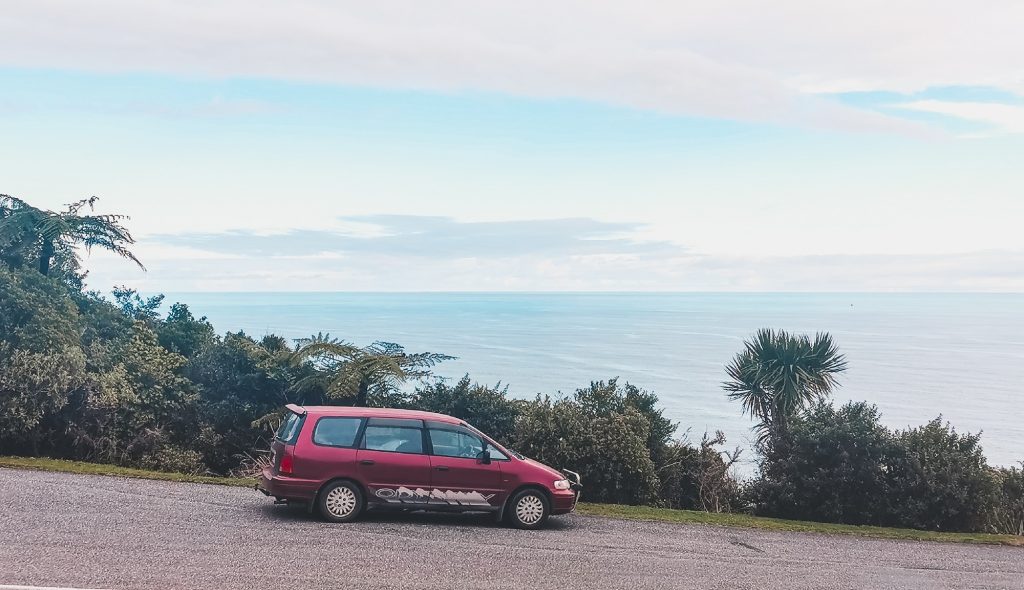
For me, the Van Life rhymes with freedom. The freedom to go where the wind takes us, to leave, to stay, to take unexpected detours. Living on the road means being able to eat by a lake, at the base of a mountain. It means stopping and running on the beach. This freedom goes hand in hand with spontaneity. Each moment feels like a new journey, a new adventure. We let ourselves be guided by our desires, by our curiosities, by the encounters, just because.
Life in a van is so simple. We live with little and we are satisfied with little. There is no planning, no clutter. This simplicity brings such serenity. We live from day to day. You make do with what you have and everything satisfies you. The Van Life makes us realize that Baloo was right, it’s all about the bare necessities in life. Thanks to this lifestyle, I realized that many of my belongings were superfluous and did not, in fact, bring me any satisfaction. So I decided to continue to live with less and, I must admit, it’s liberating! When you have few things, you also have few choices to make. And from a psychological point of view, having few choices saves our energy for other things like creativity. Simplicity makes my day-to-day life more calming, so I feel more fluid and lighter.
Finally, Van Life is about connecting with nature. It’s falling asleep lulled by the storm or the call of the morepork, waking up to the sound of the waves and the sun on the ocean. When you live in your car, especially in New Zealand, you are always surrounded by nature. Living with the sun forces us to connect. I learned to be attentive, to listen to the environment, to appreciate the silence. I learned to read the clouds, the colors of the sky and the wind. I learned to orient myself, to tell the time thanks to the sun. I learned to appreciate the small things, to notice the small differences that have big effects… And thanks to all this, I felt in harmony with this beautiful nature that surrounds us.
So, settle down? Van Life? Both?
There is no right answer because the best way to travel is the way that fits you and that fulfills you.
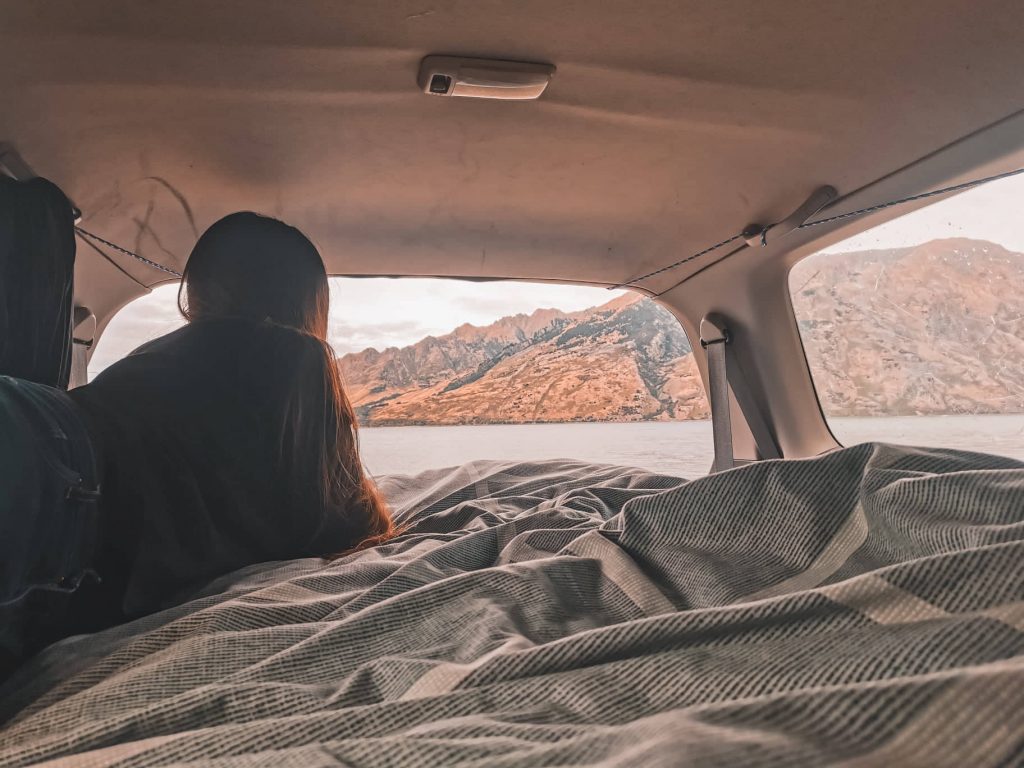
In my case, I’m glad I got to experience both. I would like to live in a completely nomadic way at some point in my life. And I will. But for now, alternating between traveling for months at a time and living from a safe base works for me and allows me to have the ideal of connection to others, connection to self and connection to nature. Plus, it is not because we settle down that we cannot adopt a Van Life attitude and have a picnic on the beach…
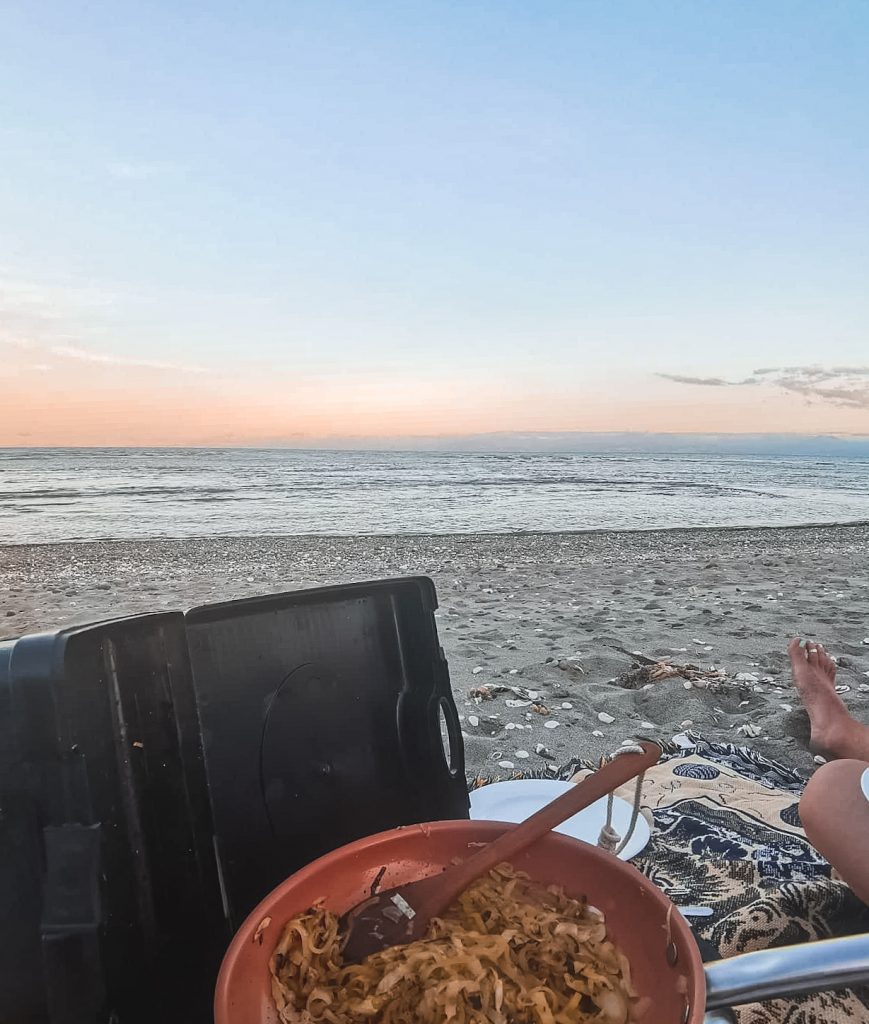












 Français
Français English
English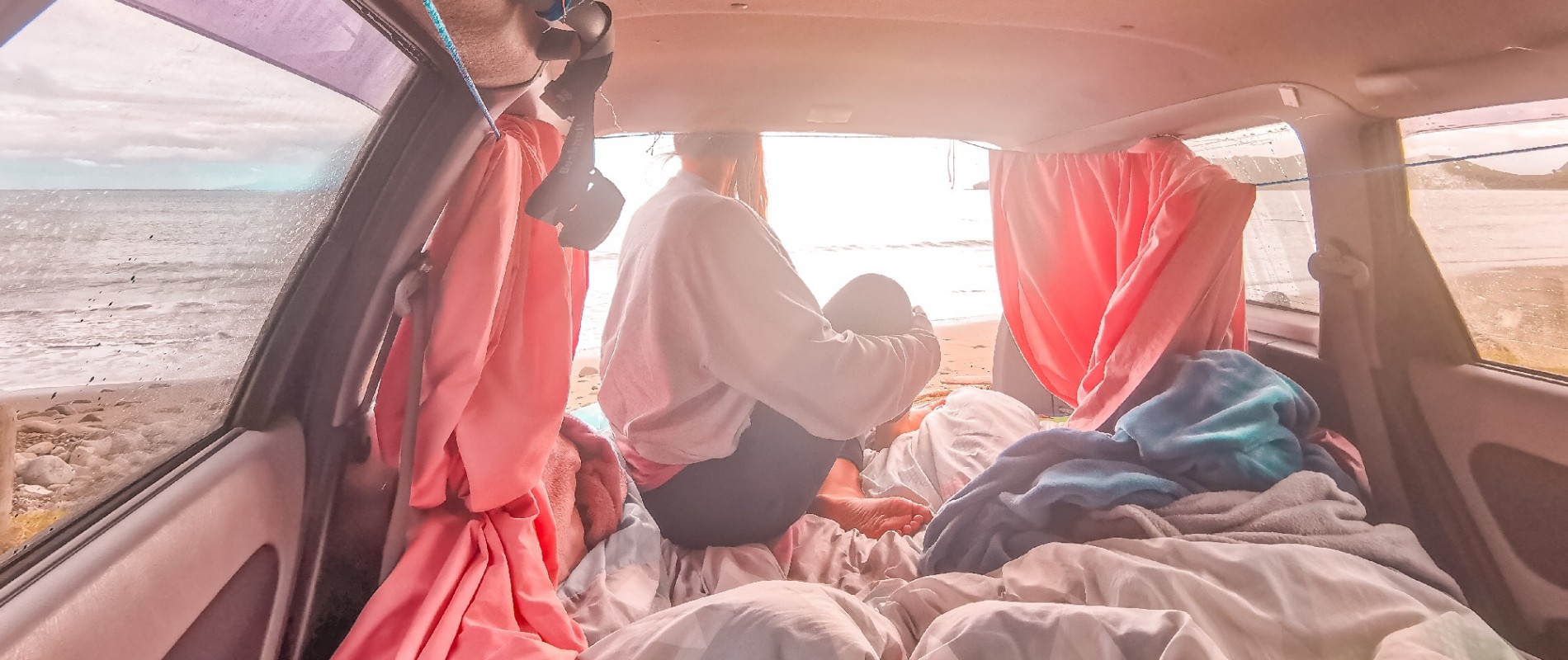









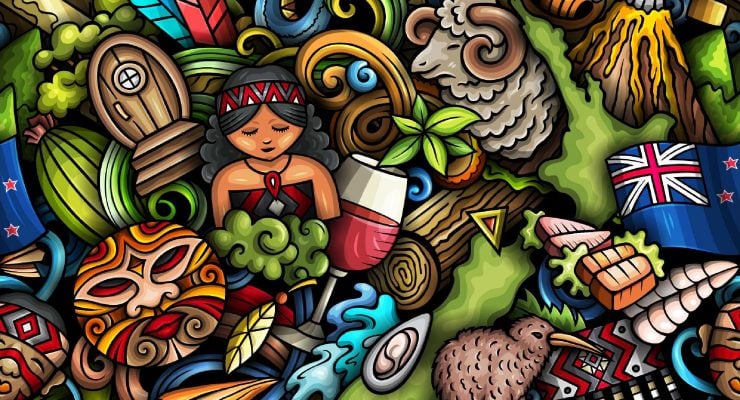
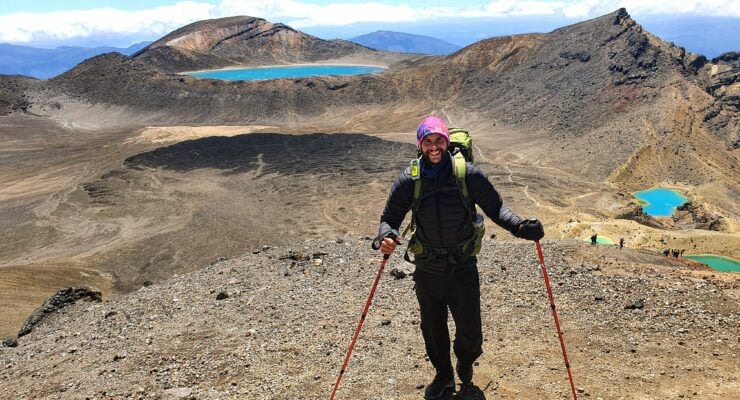
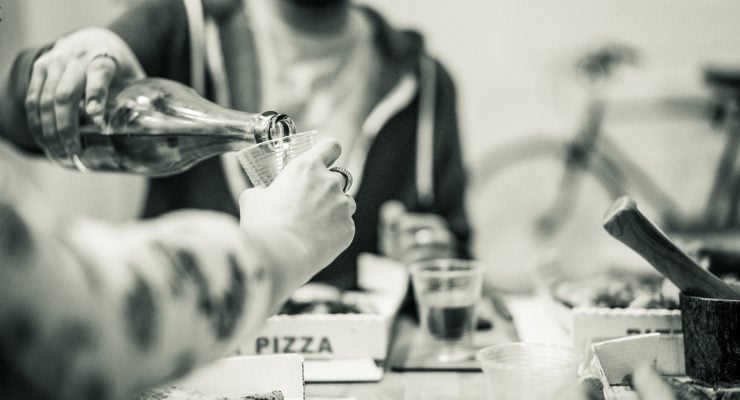
0 comments
{{like.username}}
Loading...
Load more